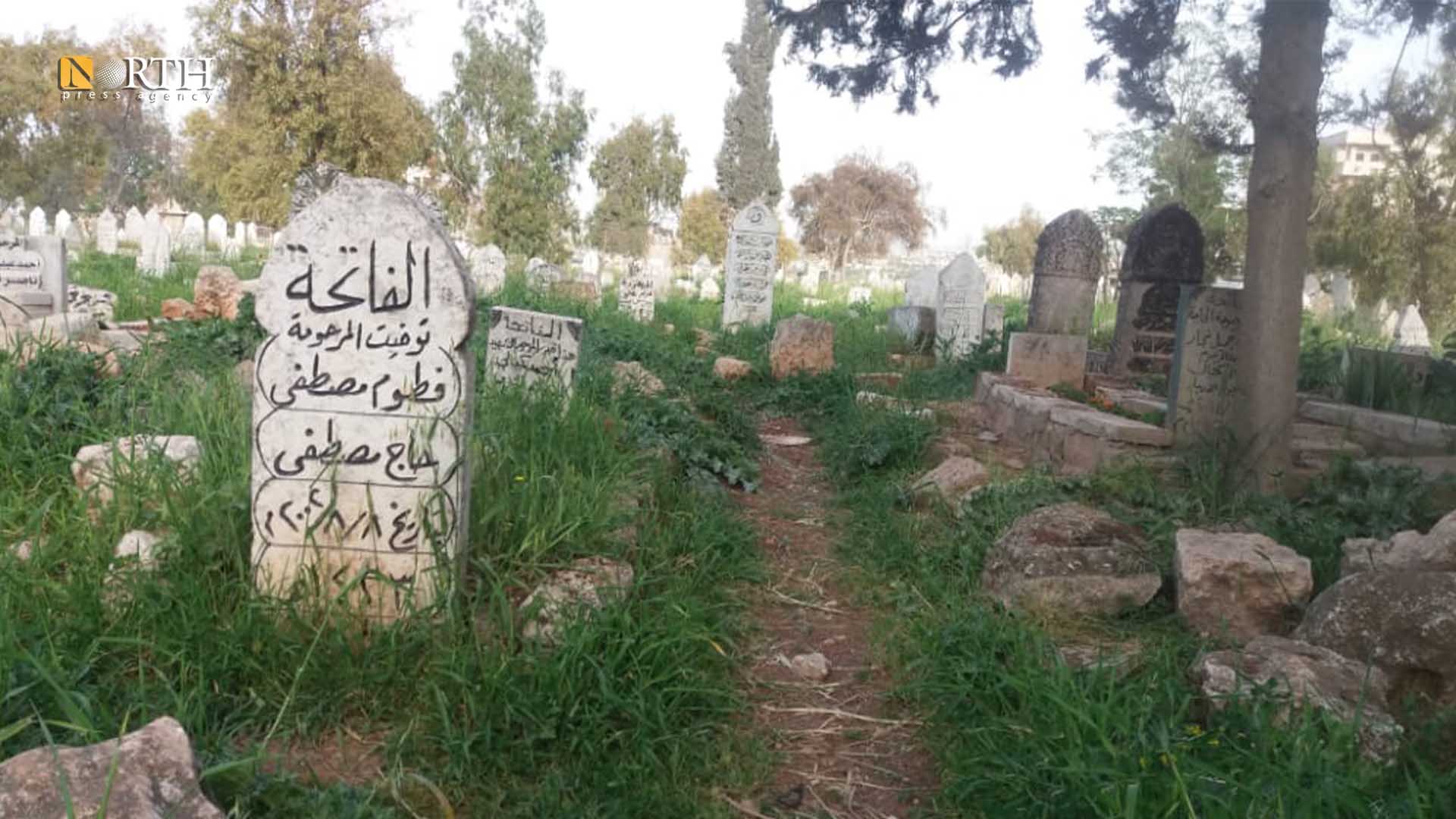Displaced people in Syria’s Idlib face difficulties in burying their dead
IDLIB, Syria (North Press) – Displaced people in Idlib regions, northwest Syria, are facing difficulties in finding cemeteries to bury their dead, not to mention the costs they have to pay to local councils at foreign currency, “US dollars”, which increases their suffering.
Hardship and exorbitant costs
In order to be able to bury their dead, the displaced in Idlib regions have to pay a sum of money ranging between $50 and $75 as a tax for a single tomb.
The local council of the Salvation Government, the political wing of Hayat Tahrir al-Sham (HTS), imposes this tax on the displaced, and not on the indigenous residents.
The costs of the funeral amounts to about $ 200, while the concerned authorities disclaim to secure a cemetery for the displaced.
Muhammad al-Bajri, 35, a displaced person in the city of Sarmada, north of Idlib, buried his deceased father in a mountainous hill near the Syrian-Turkish border.
He told North Press that he had to do so after he was “unable to secure a tomb for his father due to the enormous cost imposed by the local council and the cemetery owners in the city.”
Al-Bajri added that in the past they had several cemeteries in their city, Ma’arat al-Nu’man, which were designated by the city’s wealthy to bury the dead for free.
Burial procedures were limited to the fee for digging the tomb and the costs of the funeral only.
Muhammad al-Mesto, 35, a pseudonym for a displaced person from the western countryside of Aleppo, in the town of al-Dana, north of Idlib, had to borrow $ 200 to complete the burial ceremony of his wife.
Those in charge of the cemeteries in the city refused to give him a grave before he paid for it in advance, on the pretext that he was a displaced person and a stranger to the area.
“The displaced have become worthless and deprived of rights protecting their dignity and the dignity of their dead,” al-Mesto told North Press.
Unfair actions
The taxes imposed by the Ministry of Endowments of the Salvation Government on everyone who occupies communal lands “public properties”, forced the displaced to bury their dead secretly in these lands for fear of being persecuted.
Salim Ramadan, a pseudonym for a displaced person from the southern countryside of Idlib, said that he had to pay a tax of 100 Turkish liras, because he buried his deceased son in a land owned by the Salvation Government.
“The Ministry of Endowments imposed an amount of 100 Turkish Liras on me, which is equivalent to my work wage as a builder for five days,” he added.
After waiting eight hours waiting inside the cemetery, Khaled al-Karroum, 55, a pseudonym for a displaced person from Hama northern countryside, residing in Sarmada, was able to bury his wife, but outside the cemetery.
“The reason for this is that the local council in Sarmada refused to bury my wife in the city cemetery under the pretext that I am not one of the residents,” he said.
Al-Karroum buried his wife in a mountainous land near the town of Deir Hassan, north of Idlib, which is known as “public property”, because he was unable to buy a grave in the city, in addition to the previous reason.
However, al-Karroum was surprised the next day to be informed to go to the court of the bordering city of Atma, which demanded him pay 100 Turkish liras as tax for the grave.
“I had either to pay or get the body out to bury it somewhere else,” he said.
He pointed out that he started looking for a grave for him before his death, fearing that he would not find a grave to have him after his death.
Muhammad al-Mehdi, a pseudonym for a human rights activist, told North Press that the responsible authorities are primarily concerned with securing cemeteries to bury the dead.
However, the Salvation Government is working to lease public property and impose taxes on the displaced who live in it, regardless of their suffering, according to al-Mehdi.
There are 1,193 IDP camps in northwest Syria, which are shelter for more than one million displaced Syrians, according to the Response Coordination Group (a group active in opposition-controlled areas).

